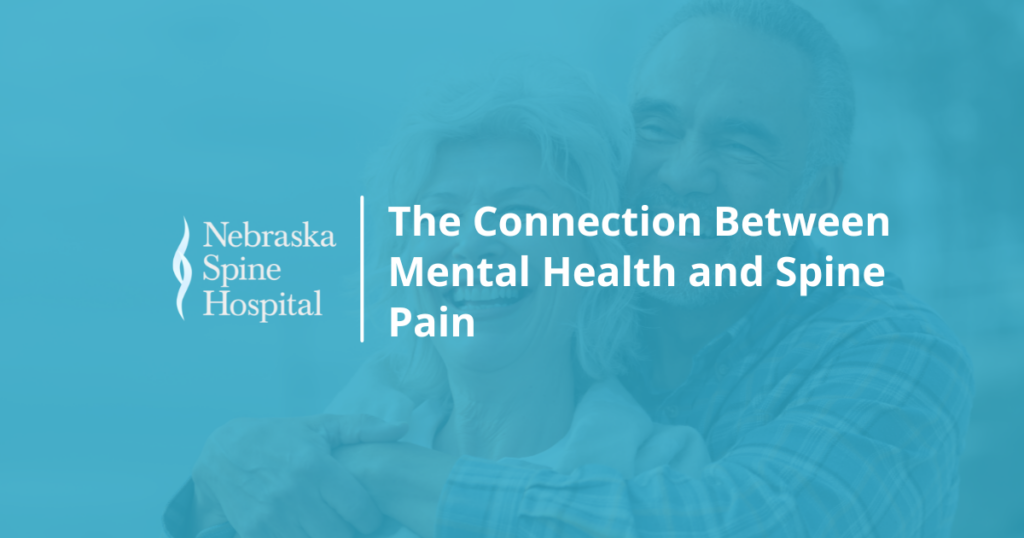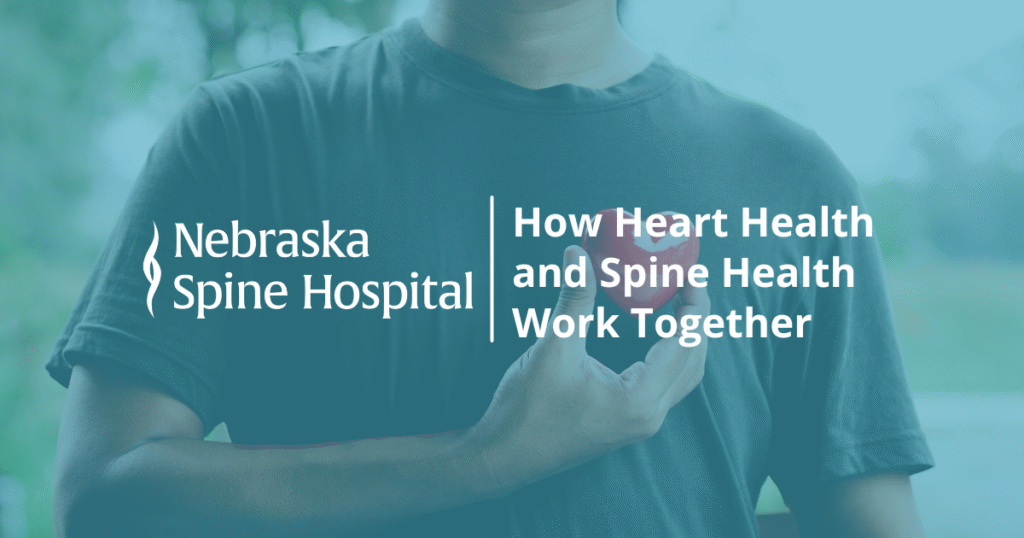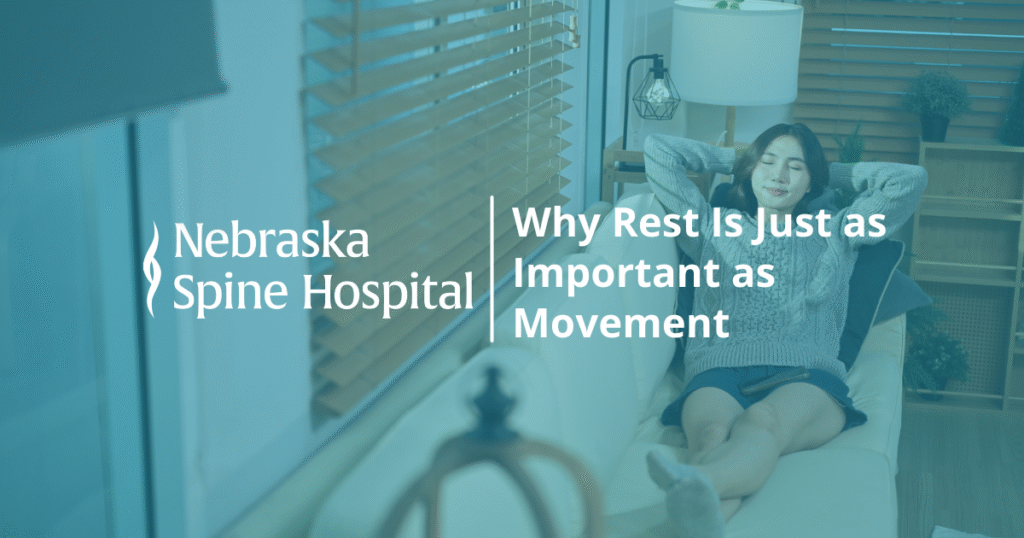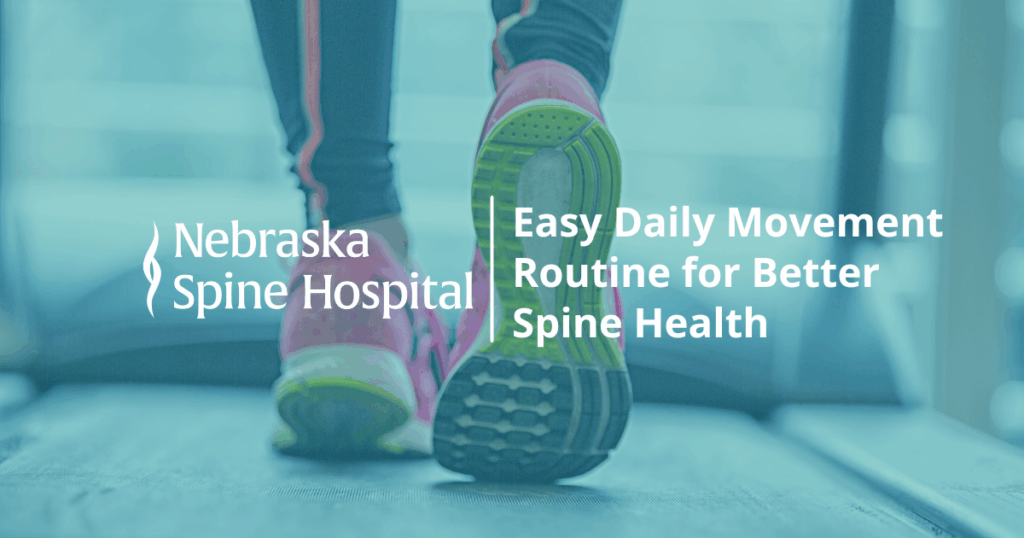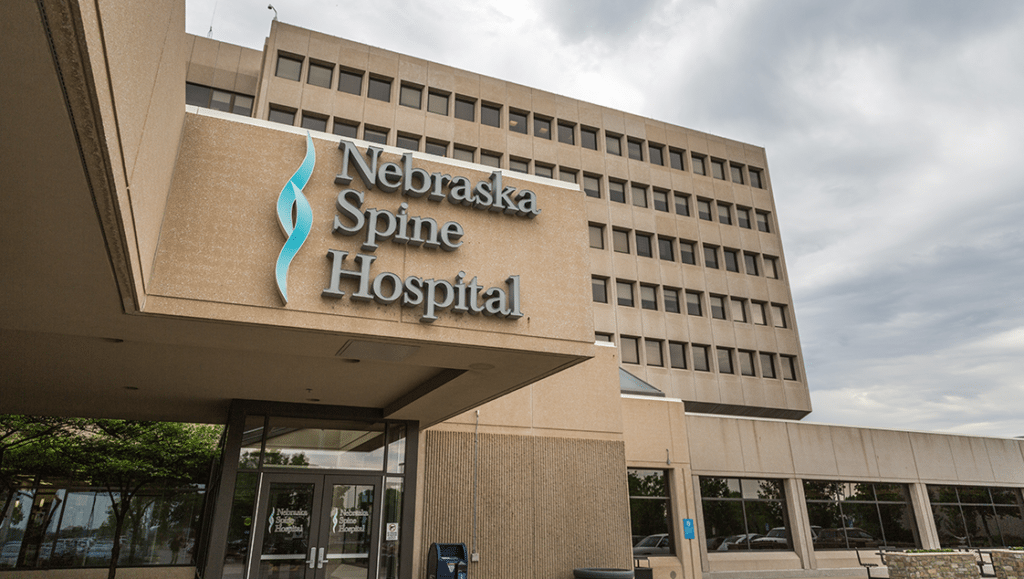When it comes to spine health, most people immediately think of physical causes—poor posture, injuries, or repeated strain. While those are significant factors, there’s another vital piece of the puzzle that often gets overlooked: mental health. At Nebraska Spine Hospital, we believe in treating patients holistically, which includes understanding how mental health impacts physical well-being, particularly spine pain.
How Mental Health Impacts Spine Pain
Research has shown a clear link between mental health conditions, such as stress, anxiety, and depression, and chronic pain, including spine pain. Here’s how these factors are connected:
- Stress and Muscle Tension
Stress triggers a natural reaction in your body—the fight-or-flight response. Unfortunately, when stress becomes chronic, it causes your muscles, including those in your back, to stay tight for extended periods. This muscle tension can lead to pain, stiffness, and even exacerbate existing back issues. - Anxiety and Pain Perception
Anxiety can amplify your perception of pain. Studies indicate that when people are anxious, their nervous system becomes hypersensitive, meaning they may feel pain more acutely. Even minor discomfort in the spine can feel amplified under the influence of anxiety. - Depression and Chronic Pain Cycles
Depression often goes hand in hand with chronic pain, creating a feedback loop that’s hard to break. Those suffering from depression may experience reduced physical activity, which weakens the muscles supporting the spine. Additionally, depressive symptoms can intensify feelings of pain, further limiting activity and continuing the cycle.
Breaking the Cycle
The good news is that addressing mental health can help manage, and even reduce, spine pain. Here are some approaches that healthcare providers and patients can consider:
- Stress Management Techniques
Practices such as mindfulness, yoga, and deep breathing exercises can reduce overall stress and relax tense muscles. This not only helps alleviate spine pain but also improves your emotional well-being. - Cognitive Behavioral Therapy (CBT)
CBT is a proven method for managing both mental health issues and chronic pain. It works by teaching patients how to shift negative thought patterns, which can reduce pain perception and improve coping skills. - Exercise and Physical Activity
Low-impact exercises like swimming, walking, or yoga can strengthen the spine’s support structures and release endorphins, which act as natural mood boosters. Regular movement helps improve both mental and physical conditions. - Professional Support
Seeking help from medical professionals, including therapists and spine specialists, is crucial. Therapists can address underlying mental health issues, while specialists at Nebraska Spine Hospital can guide you on how best to manage or treat your spine pain. Together, these professionals can create an integrated care plan tailored to your needs.
We emphasize the importance of considering the mind-body connection in our treatment plans. By addressing both mental health and physical symptoms, we aim to help patients break free from the pain cycle and lead healthier, more fulfilling lives.
If you or someone you know is struggling with spine pain, don’t hesitate to explore possible mental health factors. Sometimes the key to a healthier back isn’t just in lifting heavy objects correctly—it’s in lifting the emotional weight too.


